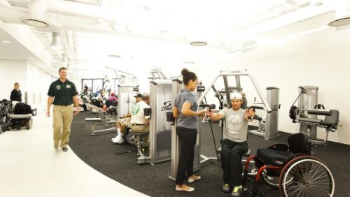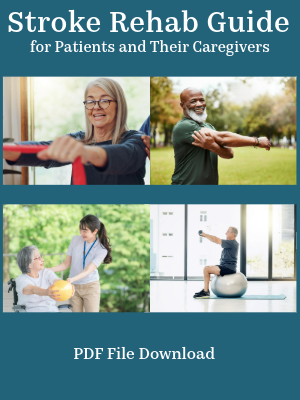Stroke Clinical Trials
Stroke clinical trials are scientific studies designed to evaluate the effectiveness and safety of potential treatments for stroke. These trials aim to understand how a new therapy or drug interacts with the body, its possible side effects, and whether it provides benefits to patients.
Clinical trials may involve intervention studies where the stroke victim is assigned to a treatment or intervention and the outcomes are measured.

There are also observation studies where the participant is merely observed and outcomes are measured. Each study will have its own criteria for participation. These clinical studies can help participants gain access to new research treatment before it is widely available. Experimental treatments may not always be effective, and there may be serious side effects so there can be risks involved with such studies.
Find Stroke Clinical Trials
Below is a list of links to help find stroke clinical trials:

In United States
Stroke studies at clinicaltrials.gov
Stroke studies at Stanford School of Medicine
Clinical Connection – Enter your own search criteria
Stroke trials at the Mayo Clinic

Worldwide:
From WHO (World Health Organization) - Search engine that you can use to search clinical trials in countries all over the world.
Research studies can be a great way for some patients to get extra therapy without cost. Most of these clinical studies require that a patient meet certain criteria so when looking for a trial, make sure that you meet the requirements. There are many types of trials. Some deal with trying new medicines, controlling spasticity, rehabilitation techniques, using new robotic devices, and improving speech or cognition to name a few.
A stroke study could be beneficial to a patient who is looking for help with a specific problem. Unfortunately, these trials and studies can be spread out and are not always available in the area where one lives. One will need to check periodically for trials as new ones emerge on a regular basis, so what is available today can change quite a bit from what is available several months from now.
Why Participate in Stroke Clinical Trials?
Advancing Medical Knowledge: By participating in clinical trials, patients become vital contributors to the expansion of knowledge about stroke prevention, treatment, and rehabilitation. New discoveries resulting from these trials can lead to breakthrough treatments that transform stroke care.
Access to Cutting-Edge Treatments: Participating in a clinical trial can provide patients with access to treatments that are not yet widely available. This early exposure to innovative therapies may offer a chance for better outcomes, especially for patients who have not responded well to conventional treatments.
Improving Stroke Care: Clinical trials play an important role in raising the bar for stroke care. They provide a platform for comparing different treatment approaches and identifying the most effective ones. As a result, clinical trials help shape evidence-based guidelines for stroke management, ultimately improving the standard of care for all stroke patients.
Tailored Treatment Options: Stroke clinical trials may involve personalized or targeted therapies based on individual characteristics such as genetics or lifestyle factors. These studies may lead to tailored treatments that maximize the chances of recovery for each patient.
Empowerment and Hope: Participation in clinical trials can provide the stroke patient with a sense of empowerment, as they actively contribute to their own recovery and the advancement of stroke research. Additionally, clinical trials offer hope for those who may have exhausted conventional treatment options and are seeking alternatives.
Risks with Stroke Clinical Trials
Participating in stroke clinical trials, like any medical research study, carries certain risks. These risks are assessed and minimized to the greatest extent possible by researchers, but it's crucial to talk openly with the healthcare team to clear up any doubts or worries about a trial. Informed consent is necessary to make sure patients know the purpose, procedures, and risks of the study. Some of the risks associated with clinical trials include:
Unknown Side Effects: Since clinical trials often involve new drugs or therapies, the potential side effects of the treatment may not be fully understood. While researchers conduct extensive preclinical testing and smaller safety studies before proceeding to clinical trials, unforeseen adverse reactions can still occur.
Ineffectiveness of Treatment: The treatment being investigated may not be as effective as hoped or may not provide any benefit over existing treatments.
Time and Commitment: Clinical trials usually require a significant time commitment from participants. This includes attending multiple visits to the research site, undergoing various tests, and complying with study protocols. The time investment can be challenging for some individuals, especially if they have other medical or personal obligations.
Inconvenience and Discomfort: Some procedures or tests conducted during the trial may cause discomfort or inconvenience for participants. For example, repeated blood tests, scans, or invasive procedures may be necessary for data collection and monitoring.
Emotional Impact: Participating in a clinical trial can be emotionally challenging, especially for patients who have high hopes for a new treatment. If the treatment is not effective, participants may experience disappointment or frustration.
Confidentiality Concerns: Clinical trials follow strict privacy rules, but there's a small risk that personal information might accidentally be shared.
Withdrawal Risks: Participants have the right to withdraw from the trial at any time. However, suddenly stopping a treatment or intervention may have its risks. Researchers will inform participants about the appropriate steps for withdrawal to ensure their safety.
Financial Costs: Some clinical trials may involve additional costs such as travel expenses or certain medical tests. Participants should discuss potential financial implications with the research team before enrolling.
It is important to note that clinical trial risks are carefully balanced against the potential benefits of the research. Additionally, all clinical trials follow strict ethical guidelines to prioritize participant safety and well-being. Before joining a clinical trial, individuals should thoroughly discuss the risks and benefits with the research team and carefully consider their own health status and preferences. Participating in a clinical trial is a voluntary decision, and potential participants should never feel pressured to enroll.
Patients should also discuss their interest in participating in a clinical trial with their family and discuss the potential risks. Having a strong support system can positively impact the overall experience and commitment to the trial.
World Map & UK, Australia, and Canada Flag Images by rawpixel.com on Freepik
Get Our Stroke Rehab Guide

Our comprehensive stroke rehab guide in pdf format is designed for both patients and caregivers who want clear, practical ways to support recovery, improve daily function, and regain independence at home. It includes
- Rehab exercises with pictures for safe home practice
- Physical, occupational, and speech therapy guidance
- Tips for daily activities and adaptive equipment
- Answers to common questions from patient and caregivers
- Information on stroke causes, treatment, and prevention
A single therapy visit can run $150 or more. The Stroke Rehab Guide is only $14.99, and includes a pdf guide you can continue to refer to in the future with exercises and information on stroke recovery. In addition, any time an update or new version of the guide is written, you will get the updated version for free.

About the Author
Karen Murray, OTR, CHT, CSRS, is a licensed occupational therapist, Certified Stroke Rehabilitation Specialist, Certified Hand Therapist, and Certified Personal Trainer with over 29 years of experience working with stroke survivors in hospital, outpatient, and home settings. She founded Stroke-Rehab.com to help patients and caregivers better understand stroke recovery, find evidence-based resources, and regain independence at home.
Medical Disclaimer: All information on this website is for informational purposes only. This website does not provide medical advice or treatment. Always seek the advice of your physician or other healthcare provider before undertaking a new healthcare or exercise regimen. Never disregard professional medical advice or delay seeking medical treatment because of something you have read on this website. See the disclaimer page for full information.

















